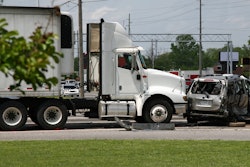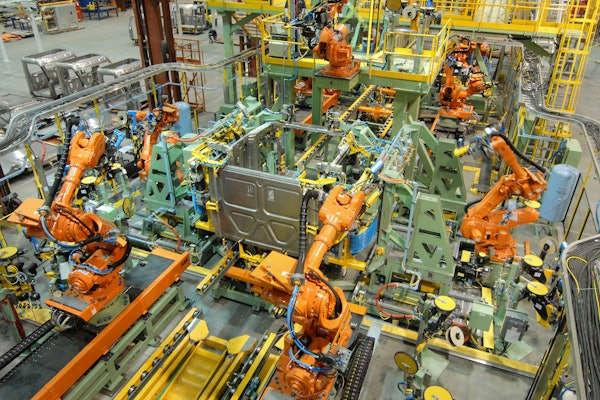When my wife and I got married and moved into our first house, our first major home furnishings purchase was a huge (at the time) television: a 55-inch rear projection Sony Wega that set us back $3,000. In 2004, that was the equal to more than five mortgage payments.
It was probably one of the dumber things we could have purchased at the time but in your early 20s, and rounding corner into football season, your priorities don't always make a lot of sense.
Plasma TVs were the big thing, and cheaper, but LCD-LED was the way of the future. I was getting on this trend early and I was paying up for it.
Nearly 20 years later, they don't even make the Wega anymore and the TV I have now is not only larger, it cost about 87% less. Two decades later, TVs are cheaper and better. Heavy trucks can't say the same.
Trucks that used to cost about $100,000 now cost nearly $200,000 (or more). They're more efficient for sure, but with sticker prices practically doubled it's unlikely I would ever recoup that difference over the course of the truck's lifecycle. That's why it's long past time to do away with the Federal Excise Tax on heavy trucks.
In a letter jointly penned by the American Trucking Associations, American Truck Dealers, and Zero Emission Transportation Association (ZETA), and sent to Congressional leadership last month, the groups claim that the tax – established in 1917 to defray the costs of World War I – is impeding the deployment of cleaner, more environmentally friendly trucks by disincentivizing the purchase of new, low-emission power units.
They're right.
Various bills to repeal the FET on trucks have been introduced each year since at least 2017 but they barely get further than introduction. Some don't even get out of committee. This doesn't appear to be an issue that is going to get a lot of traction, despite government-sponsored mandates that trucking companies get greener.
Trucking companies are being strong armed into cleaner transport solutions, and the 12% FET can add more than $50,000 to the price of the latest low- or zero-emission vehicle, which are already more expensive thanks to the technology and raw materials it takes to produce them.
The most fuel efficient and greenest trucks available are the ones rolling down the assembly line right now, but the FET incentivizes two things: keeping the old truck you have or buying a used truck – a truck that might be slightly more efficient than your old one, but one that's not as efficient as a brand new one.
I'm going to let fleet X get hammered with the FET and beat up with depreciation. I'll swoop in and take the tradeoff of higher mileage for lower upfront cost, even if I do have to give up come efficiencies and improved emissions.
Now, let's consider that the acquisition cost of electric truck is more expensive than a diesel. Granted, there are some lifecycle savings from charging versus diesel fuel and reduced maintenance, but there's no way around it: the truck costs more upfront. Then there's the consideration of installing the infrastructure to support it, which can cost as much (or more) than the truck itself.
Fleets willing to embrace the role they play in carbon emissions with a willingness to change it shouldn't be penalized for it. There has to be a tangible cost savings, and while we all understand there are savings to be had in fuel and maintenance, they're abstract. We really don't yet know what they are or what they will be.
But the electrified future is just that; the future. There are cleaner diesel solutions available now, but that 12% tax looms large. Not every fleet will be able to go zero emission. Even if they can, that might be a generation away. Those fleets right now could get closer to zero emissions by embracing lower emission vehicles, but the FET is a barrier to entry.
If your dealer told you that the latest generation models were FET-exempt, you'd know that you're reaping a 12% benefit right off the top. It makes that model year 2024 truck a lot more attractive when you compare it to a premium used one maybe a couple model years older with near-six-figure mileage.
I would encourage every fleet to reach out to your legislators and your local and state trucking associations and let them know your thoughts. That widespread support for the problem historically hasn't been organic, it's going to take pressure – a lot of it. Zero emission is the future, but reduced emissions is the right now; or it could be if there wasn't an antiquated tax associated with it.












